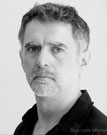

Peter Godfrey-Smith: Memory as Communication
5 September 2014, 11:30 am - 1:00 pm EDT
ABSTRACT
Memory can be seen as communication between stages – communication between an earlier and a later self. This idea only becomes more than a loose analogy, though, if there is a theory of communication that can add something substantial to our understanding of memory. I’ll argue that recent models of communication, developed for quite different applications, can indeed play this role. Application of these ideas to memory can inform debates about the ‘reconstructive’ nature of memory, the function of episodic memory, and the relations between memory in genetic, epigenetic, and neural systems.
SPEAKER PROFILE
 Peter Godfrey-Smith is currently a Distinguished Professor of Philosophy at the Graduate Center, CUNY (City University of New York).
Peter Godfrey-Smith is currently a Distinguished Professor of Philosophy at the Graduate Center, CUNY (City University of New York).
He grew up in Sydney, Australia. His undergraduate degree is from the University of Sydney, and he has a PhD in philosophy from UC San Diego. He taught at Stanford University between 1991 and 2003, and then combined a half-time post at the Australian National University and a visiting position at Harvard for a few years. He moved to Harvard full-time and was Professor there from 2006 to 2011, before coming to the CUNY Graduate Center.
His main research interests are in the philosophy of biology and the philosophy of mind. He also works on pragmatism (especially John Dewey), general philosophy of science, and some parts of metaphysics and epistemology. He has written four books, Complexity and the Function of Mind in Nature (Cambridge, 1996), Theory and Reality: An Introduction to the Philosophy of Science (Chicago, 2003), Darwinian Populations and Natural Selection (Oxford, 2009), which won the 2010 Lakatos Award, and Philosophy of Biology, just released by Princeton.
Read more about Peter Godfrey-Smith.
